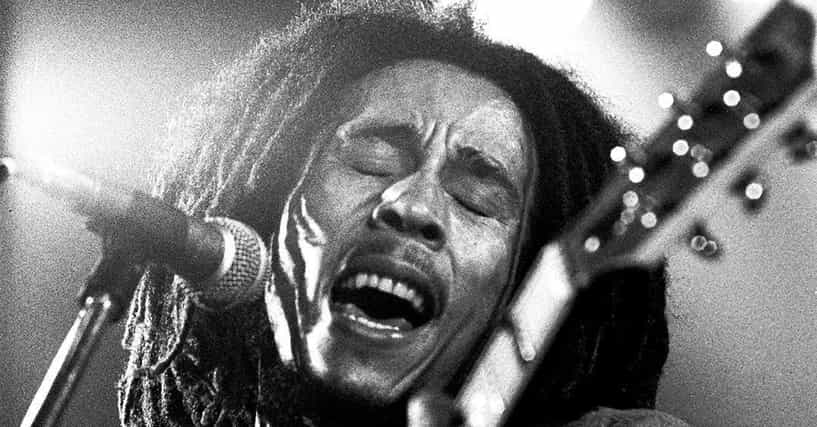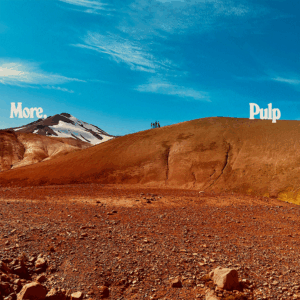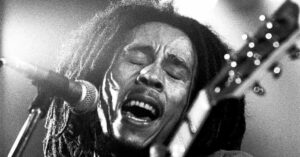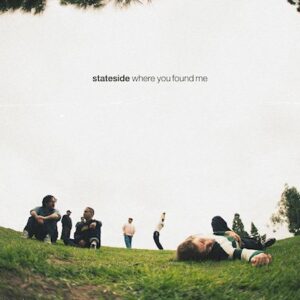NO JUSTICE, NO PEACE: MUSIC AS RESISTANCE

Music is more than a pleasant sound; music is a revolution. Music provides a voice to the voiceless, power that topples governments and changes things. Protest music is not entertainment; it disrupts, provokes, and demands more.
Music has long been the instrument of protest. “We Shall Overcome” fueled the Civil Rights crusade, “Eve of Destruction” written by P.F Sloan and performed by Barry McGuire in 1965 protested in Vietnam, and John Lennon’s “Give Peace a Chance” became the anthem of all that is peaceful. Lennon didn’t compose tunes, he composed manifestos. Imagine was a challenge to the world: no borders, no materialism, no divisions.
This tradition is ongoing. Protest music is still stirring, and artists are continuing to take sides and stand in opposition to injustice. Massive Attack, Paul Weller, The Murder Capital, Garbage, Annie Lennox, Mogwai, and Pulp are standing in solidarity with Palestine from their platforms, and Ethel Cain, Kehlani, Macklemore, MC Abdul, and Saint Levant are releasing music in direct response to the crisis. Rage Against the Machine, Sleater-Kinney, Bikini Kill, Brian Eno and more are calling for a ceasefire.
Their voices are part of a tradition of musicians articulating outrage in action Frankie Goes to Hollywood “Two Tribes” sang about nuclear fear, Johnny Cash with “Man in Black” denounced injustice, and Paul Weller in The Jam with “Eton Rifles” lampooned class privilege. Irish rebellion and support for the repressed smoulders in Kneecap’s music, and punk fury drives Lambrini Girlz’ feminist anthems.
But protest music does not exist in isolation from resistance. Institutions, governments and states retaliate, attempting to censor voices, silencing songs and branding artists as agitators, like with the recent arrest of Kneecap’s Liam Óg Ó hAnnaidh (stage name is Mo Chara, which means “my friend” in Irish). We know from past examples that the establishment will always strive to silence dissent, yet the artists will not. Like Nina Simone, like Bob Marley, and like The Clash before them, artists today are continuing their work, as testament that music is one instrument of resistance no government can silence.
This is not just music, this is a powerful protest. It’s about challenging the status quo and demanding change. We’re diving headfirst into an exploration of some of the greatest protest music of all time. Let’s go.
Blowin’ in the Wind – Bob Dylan (1963)
This folk anthem poses rhetorical questions about peace and justice, making it one of the most iconic protest songs ever. Dylan’s lyrics, such as “How many times can a man turn his head, and pretend that he just doesn’t see?”, resonate through generations fighting for civil rights and equality.
Strange Fruit – Billie Holiday (1939)
A haunting protest against lynching in America, this song originated as a poem by Abel Meeropol. Holiday’s raw vocal delivery makes it one of the most chilling and powerful protest songs ever recorded.
Redemption Song – Bob Marley 1980
Among Bob Marley’s best and most enduring works is “Redemption Song”, featured on his final studio album in 1980, Uprising. A stark acoustic ballad and departure from his usual reggae form, the tune is comprised of a starkly personal and bare message. Stealing his lead from the philosophy of Marcus Garvey, Marley incites the listener to “Emancipate yourselves from mental slavery”, and “Redemption Song” is now a classic anthem of rebellion and freedom.
In contrast to the majority of Marley’s work, “Redemption Song” is performed with only his voice and acoustic guitar, highlighting the song’s revolutionary and introspective character. The lyrics convey the oppression, survival, and hope and resonate with justice struggles globally. “Redemption Song” is among the most iconic of Marley’s tunes and reflects his influence as a voice of the oppressed.
War – Edwin Starr (1970)
Famous for its blunt critique of war, “War! What is it good for? Absolutely nothing!” this song became an anti-Vietnam War anthem and remains relevant in discussions on military conflicts worldwide.
The Recap – Kneecap (2022)
Kneecap is one of the most politically charged bands in modern music, using their bilingual Irish-English rap to challenge authority and expose historical injustices in Northern Ireland. Their track “The Recap” is a direct confrontation of political figures and censorship, reflecting their commitment to resistance through music.
From their name, referencing kneecapping, a paramilitary punishment during The Troubles, to their incendiary lyrics, Kneecap refuses to soften their message. Their music is deeply rooted in Irish identity and rebellion, drawing comparisons to past protest artists who used their voices to fight oppression. Their activism has sparked government backlash, with UK and Irish officials condemning their statements and even attempting to block their funding. Despite this, Kneecap continues to push boundaries, using their platform to criticise systemic oppression and challenge the status quo.
Whether through their lyrics, performances, or activism, Kneecap remains a powerful force in political music, proving that protest is not just about words, it’s about action.
Black Boys on Mopeds – Sinéad O’Connor (1990)
This track was inspired by the killing of a black British man, it is a heartbreaking protest against police brutality and systemic racism. O’Connor’s raw voice lays bare her frustration and sorrow.
Billy Bragg – Waiting for the Great Leap Forwards 1988
Billy Bragg has written many powerful protest songs, but “Waiting for the Great Leap Forwards” is often considered one of his best. Released in 1988, this track is a rallying cry for activism, urging people to take action rather than passively accept the status quo. With lyrics like “You can be active with the activists or sleep in with the sleepers”, Bragg challenges listeners to engage in political change.
Famine – Sinéad O’Connor (1994)
Sinéad O’Connor’s song “Famine” (1994) is a powerful critique of the political failures surrounding Ireland’s Great Famine. The track challenges the historical narrative that the famine was purely a natural disaster, instead highlighting the role of British policies and social manipulation that exacerbated the suffering of the Irish people. O’Connor’s lyrics confront the long-term consequences of colonial rule and the way history has been shaped to downplay the injustices faced by Ireland.
War (Live) – Sinéad O’Connor (1992)
The world really didn’t deserve Sinead O’Connor. Her controversial, a cappella performance of Bob Marley’s “War” on Saturday Night Live remains one of music’s boldest protests. She changed the lyrics to call out the Catholic Church’s cover-up of child abuse, shocking and educating audiences worldwide.
Fight the Power – Public Enemy (1989)
This hip-hop anthem from Do the Right Thing calls out systemic oppression, racial injustice, and corrupt authority. Public Enemy’s fiery verses make it a timeless protest song.
Ohio – Crosby, Stills, Nash & Young (1970)
Written in response to the Kent State massacre, this song memorialises the four students killed by National Guard troops during an anti-war protest. Its urgency and emotion make it one of rock’s most potent political statements.
A Change Is Gonna Come – Sam Cooke (1964)
A soul classic that became synonymous with the Civil Rights Movement, this song expresses hope for racial equality while acknowledging the struggles black Americans faced. Cooke’s velvet voice and poignant lyrics continue to inspire activism.
Bulls on Parade – Rage Against the Machine (1996)
This explosive track critiques military-industrial corruption and government overreach. With its aggressive guitar riffs and Zack de la Rocha’s fiery delivery, “Bulls on Parade” remains one of Rage Against the Machine’s most powerful protest songs.
Killing in the Name – Rage Against the Machine (1992)
One of the most explosive protest songs in rock history, inspired by police brutality. Its iconic refrain “Fuck you, I won’t do what you tell me” became a symbol of resistance, famously taking the UK Christmas No.1 spot in 2009 after a grassroots campaign against mainstream pop music.
The Eton Rifles – The Jam (1979)
Written by Paul Weller, this song critiques class inequality in Britain. Inspired by a real-life incident where privileged students from Eton College mocked working-class protesters during a Right to Work march, its biting lyrics “What chance have you got against a tie and a crest?” highlight the struggles of the working class against entrenched elitism.
Man in Black – Johnny Cash (1971)
Cash’s self-penned protest song explains why he always wore black to stand in solidarity with the poor, the incarcerated, and those suffering under injustice.
The Ballad of Ira Hayes – Johnny Cash (1964)
A heartbreaking song about Ira Hayes, a Native American war hero who was neglected by society after returning home. Cash’s delivery makes the song even more poignant.
This Is America – Childish Gambino (2018)
I remember the first time I saw this video. Although it was brutal, it effectively delivered its message. It offers a chilling critique of gun violence and systemic racism in America. The track blends trap beats with gospel harmonies and poignant lyrics to highlight deep-rooted social issues.
American Skin (41 Shots) – Bruce Springsteen (2001)
Written in response to the police killing of Amadou Diallo, this song details the tragedy of racial profiling and police brutality, with a refrain that echoes the injustice: “You can get killed just for living in your American skin.”
Livin’ in the USA – Low Cut Connie (2025)
A mournful protest ballad reacting to mass deportations and political unrest, blending soulful vocals with an aching piano arrangement.
Hunger Games – Bob Vylan (2024)
A punk anthem criticising austerity and the cost-of-living crisis, its rage-fuelled delivery reflecting the frustrations of Britain’s younger generations.
God’s Country – Lambrini Girls (2024)
A fierce political statement from one of the UK’s most outspoken bands, tackling issues like government corruption, class divides, and societal inequality.
Put the Gun Down – Voice of Baceprot (2025)
A powerful anti-violence anthem from an Indonesian all-female punk band, calling for peace and justice.
Pyramid Scheme – Hurray for the Riff Raff (2025)
A politically charged song tackling corporate greed and economic disparity.
Know Your Product – The Saints (1977)
An Australian punk classic that delivers a searing anti-consumerism message.
Rip Off – Sham 69 (1978)
The punk staple of rough-and-ready group Sham 69, “Rip Off” (1978), tapped into Britain’s working-class frustration. A protest anthem about economic injustice and consumer society, it especially lambastes the King’s Road and Oxford Street consumer society, in which working-class buyers are priced out as the wealthy get wealthier. Indignant towards the system that permits inequality to occur, it is a strong protest anthem.
Protest music is not noise, it is resistance, revolution, and history in the making. Every generation has its shout, and today’s musicians are in the trenches, taking up arms with their voices. When the government and the establishment attempt to silence the protest, the artists carry on with their music, evidence that no movement ever dies as long as the music keeps on going. From folk to punk, from hip-hop to rock, protest music is a history of unrelenting resistance in order that the struggles, the tales, and the clamour for justice are never lost.
RACHEL BROWN




